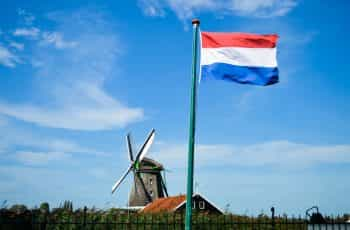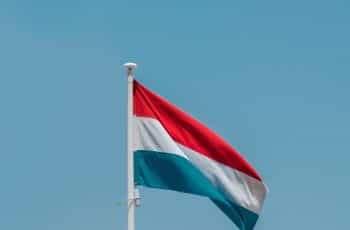KSA Releases Details on iGaming Licenses
The Dutch gambling regulator Kansspelautoriteit (KSA) has released details about the application process for new online gambling licenses in the country. The authority has also said that operators will be able to submit applications once the new legislation is in introduced in the Netherlands.

Recent legislation to change how the Dutch gambling market is regulated has prompted the KSA to release a new application process for licenses in the country. ©stux/Pixabay
The revelations on applications for licenses follow the Dutch Senate vote in February to pass the Netherlands’ Remote Gaming Act, which will see the introduction of a regulated online gambling market in January 2021. Secondary regulations will also be implemented from the 1st of July 2020, which are expected to help to govern the market.
The KSA has confirmed that it cannot update the public of exactly when the act will come into effect, but it can, however, update potential applicants of how the process will work. This, the KSA said, would allow operators to be aware of what they need to apply and pay for as soon as the regulations are implemented.
The Application Process
In the new regulated landscape of the Dutch gambling market, four different licenses will be available. There will be licenses available for casino games such as slots and table games, where the consumer plays against the operator. Another category is reserved for games such as online poker, where the consumer plays against other consumers (peer-to-peer games). Licenses for betting on sporting events and also for betting on horse racing and trotting will also be available for operators.
An application for a license is expected to cost €45,000, which will not be refunded should the license be denied by the Dutch authorities. The applications must be written in Dutch and all documentation put forward with the application must also be translated into Dutch.
Only fully completed applications will be processed, the identity of the applicants must be clear, and payments must be made to begin the process. It is also possible that the regulator will request additional information from the applicant if it is necessary to confirm their identity.
Licensing Requirements
The KSA expects operators applying for licenses to offer services in a responsible, reliable and verifiable manner, and will assess each application accordingly. The authority has stated that applications could be harmed if operators have links to parties with criminal, administrative or tax demeanors. Any relationships with such parties must be disclosed at the time of application. The authority also requires the submission of a policy plan which sets out how operators will ensure their employees have sufficient knowledge of Dutch gambling laws and regulation.
Operators who are seeking a license must not have been previously declared bankrupt. They also cannot have suspended payments or had any assets seized. Another stipulation set out by the KSA is that appropriate measures must be implemented to ensure that consumers’ funds must be held separately from working capital. The KSA has confirmed that it will consider operators who work with third-party funds or a bank guarantee.
Applicants must have a strategy set out to combat gambling addiction, which must be produced in conjunction with industry experts and must be in line with the Dutch system of addiction care. A representative of the company will also be required to be placed in Holland to support the strategy they put forward.
The strategy suggested by potential licensees should include how the operator attempts to protect players from unauthorized participation and gambling addiction. The operators must have a plan of how they intend to protect players aged 18-24 against addiction, what prevention measures and provisions are in place and how they will train staff to achieve this strategy.
Marketing strategies will also have to be approved by the KSA to ensure they fall in line with the new regulations. The strategy must include things such as how the operator will approach advertising responsibly, how ads will be prevented from being misleading, how operators will prevent incitement to inappropriate participation, how vulnerable groups will be avoided, and terms and conditions attached to bonus promotions.
A complaints system must be in place which complies with new regulations in the Netherlands that must also be disclosed in the application process. This system must be in line with Dutch consumer protection laws.
Operators who are vying to secure sports betting licenses must agree to work closely with the KSA to identify match-fixing.
Additionally, operators must demonstrate compliance with the Dutch Prevention of Money Laundering and Terrorist Financing Act, which includes measures such as client investigation, reporting of unusual transactions and risk management.
There is also a requirement for operators to demonstrate an understanding of the Sanctions Act, which covers global measures in response to a violation or threat to international peace and security.
Outsourcing is another area that will be scrutinized by the KSA. In principle, applicants will be allowed to work with third parties as long as the law does not state otherwise. If an operator opts to outsource some of their operations, however, it must fall in line with criteria set out by the Dutch government.
Operators will be expected to have a policy plan in place which outlines the risk of outsourcing and how it will be monitored. There will also need to be a guarantee that the third party is suitable for the role. An outsourcing agreement should also guarantee that the supplier complies with the legal requirements and should also ensure that the KSA has access to relevant information pertaining to outsourcing. A compliance officer will also be required to be in place to supervise any outsourced work.
The KSA has requested that applicants have an integrity policy in place, which will be designed to reduce and prevent fraud. This policy will be required to be updated regularly so that it encompasses the changing risks associated with the industry.
Payments and transactions will also be assessed by the KSA. Applicants must inform the authority of how their main payment process functions and is reported. How operators conduct risk management will be looked at as well as what is done if an incident occurs.
If an operator complies with all of these requirements and is successful in gaining a license to conduct business in the Netherlands, they will be expected to properly identify players before allowing them to gamble. Such identification measures will include verifying the name, date of birth, address and place of residence for al players. This will need to be confirmed using a valid passport or driving license.
A nationwide self-exclusion system will also be launched in the form of the Central Register for Exclusion of Gambling, which is currently in development by the KSA. The KSA will require all successful applicants to be connected to this system of self-exclusion.



